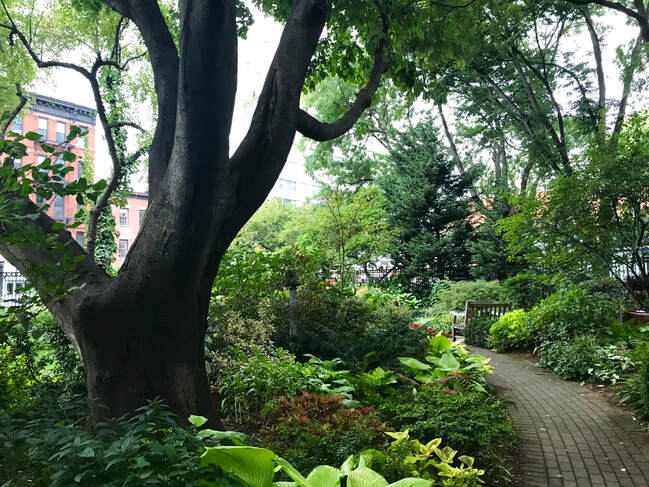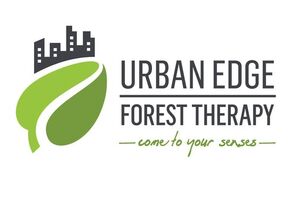 Last week I was fortunate to attend and offer a small Forest Therapy walk following a symposium on The Transformative Properties of Horticulture, sponsored by the Madison Square Park Conservancy. The symposium featured inspiring speakers engaged in breathtakingly impactful work. Naomi Sachs, a professor of therapeutic landscape architecture at University of Maryland and founder of the Therapeutic Landscapes Network, a resource for gardens and landscapes that promote health and well-being, spoke about "restorative landscapes" and the importance of providing access to nature in healthcare settings. Hospitals are stressful places where patients and their visitors are at their most vulnerable. “Health”, she added, is not just “not being sick”. It is also about physical, emotional, and spiritual wellbeing, which is enhanced by natural environments. She described the notion of “restorative landscapes”, which are landscapes that promote health and wellbeing, and could be as simple as a fire escape or memorial--any place that where a person can find peace and solace. Sachs described the many scientific and medical studies supporting the beneficial impact of nature, including—among medical patients—more rapid recovery from surgery, reduced patient complaints, and reduced need for medication, and--among the general population--improved memory and attention and a reduction in ruminative thoughts. Gwenn Fried, Manager of Horticulture Therapy Services at NYU Langone Medical Center, then spoke about therapeutic horticulture in public spaces and underscored the value of targeting the certain populations that can most benefit from it, including:
Regina Ginyard and Jenn Hertzell then engaged the audience in a networking activity focused on green spaces that give people joy. Ginyard is a founding member of Black Urban Growers (BUGS), an organization committed to "building networks and community support for growers in both urban and rural settings." Jenn Hertzell is a Bronx-based farmer and founder of At the Rood: An Herbal Eastery, Farm, and Apothecary that exists to create opportunities for people of the African Diaspora to hear their relationships with their bodies and with the earth. How fortunate we are that scholars and practitioners like Sachs, Fried, Ginyard, and Hertzell are improving lives through the transformative properties of horticulture. Stay tuned for my next blog entry to learn about what Amos Clifford said at the conference.
0 Comments
Leave a Reply. |
About this Blog
Hi! I'm Nancy Kopans, founder of Urban Edge Forest Therapy. Join me on an adventure to discover creative ways to connect with nature in your daily life, ways that are inspired by urban surroundings that can reveal unexpected beauty, with the potential to ignite a sense of wonder. Archives
April 2023
Categories
All
|

 RSS Feed
RSS Feed